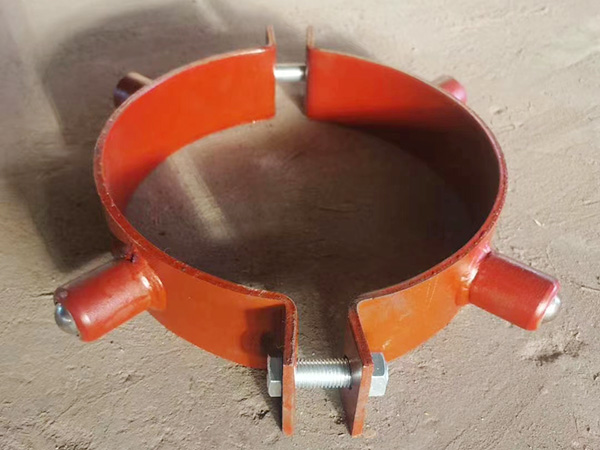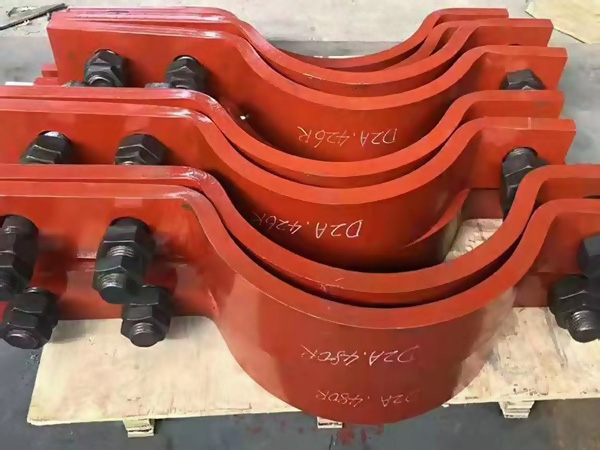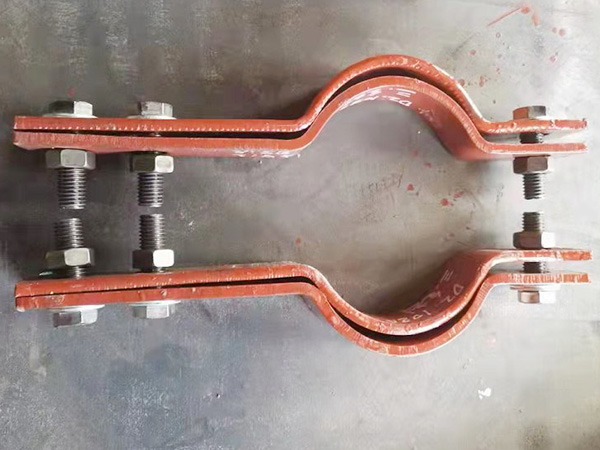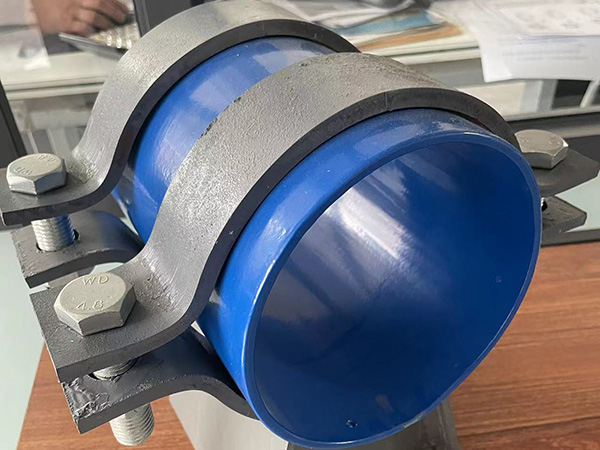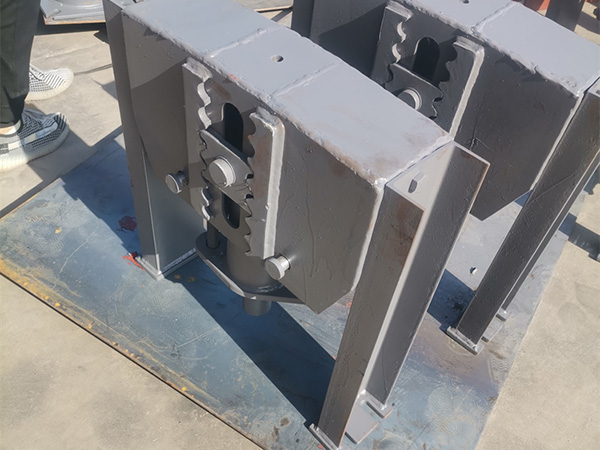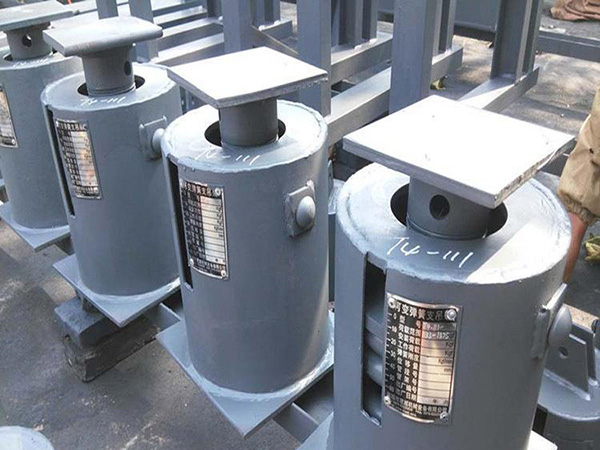How to Choose Pipe Support Systems for Heavy-Duty Industrial Lines
Author:Mingde Time:2025-10-31 09:03:39 Click:123
Why Pipe Support Systems Matter
In the world of heavy industry, pipelines are the arteries of production—carrying gases, fluids, and chemicals through complex networks.
Behind every reliable system stands a strong foundation of Pipe Support Systems, which ensure mechanical stability, safety, and efficiency under demanding conditions.
As an experienced pipe support systems manufacturer and China-based bulk supplier, we understand how selecting the right support configuration can dramatically improve the service life and cost-effectiveness of industrial lines.
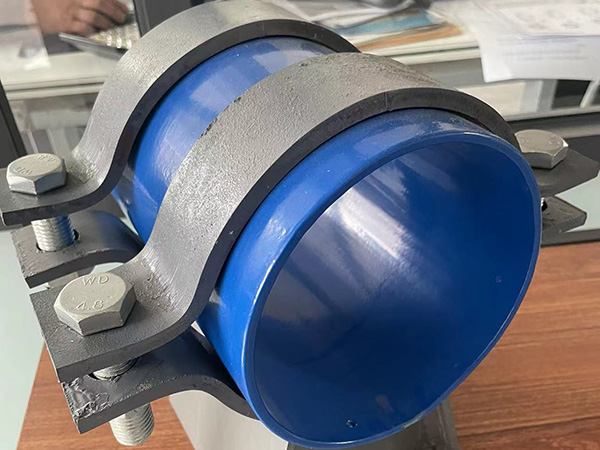
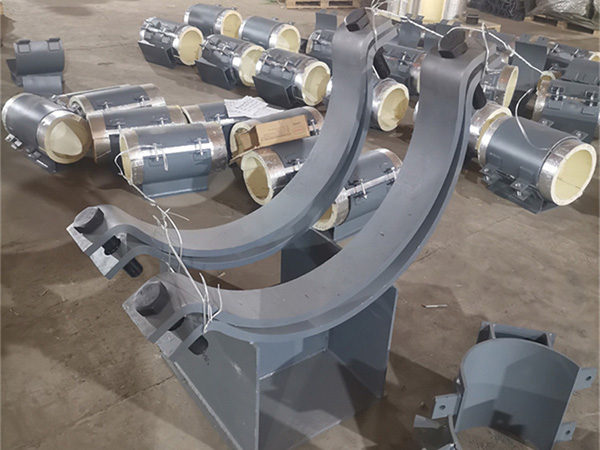
1. The Role of Pipe Support Systems
Pipe supports are more than just mechanical accessories—they are integral to system integrity. Their main functions include:
·Bearing Load: Supporting the pipeline’s weight and internal pressure loads.
·Reducing Vibration: Absorbing oscillations caused by pumps, compressors, or process flow.
·Allowing Expansion: Compensating for dimensional changes due to temperature variations.
·Maintaining Alignment: Keeping pipes straight and stable to prevent bending or fatigue cracks.
In heavy-duty industrial lines, these systems must perform flawlessly under stress, vibration, and thermal shifts that can exceed ordinary design parameters.
2. Major Types of Pipe Support Systems
Understanding the main categories helps in selecting the best option for your project:
·Rigid Supports: Provide fixed stability where minimal movement is expected.
·Spring Hangers: Designed for dynamic pipelines where vertical displacement occurs.
·Variable Supports: Offer limited movement while maintaining controlled tension.
·Snubbers & Dampers: Protect against impact loads, ideal for seismic or high-vibration zones.
Engineers often combine several types to achieve balanced load distribution and flexibility across the pipeline.
3. Choosing the Right Material
The durability and reliability of a Pipe Support System depend largely on the materials used:
·Carbon Steel: Cost-efficient for standard conditions.
·Stainless Steel: Provides superior corrosion resistance and strength in harsh or chemical settings.
·Hot-Dip Galvanized Steel: Excellent for outdoor installations with moderate environmental exposure.
·Composite Materials: Lightweight and corrosion-proof, used increasingly in offshore and energy sectors.
Partnering with a China pipe support manufacturer offering bulk customization ensures you can match the material grade with project demands, saving cost and lead time.
4. Key Design Factors
A well-designed pipe support system balances function, safety, and cost. Important considerations include:
1.Pipe Size and Weight – Determines clamp dimensions and load-bearing capacity.
2.Operating Conditions – Temperature and pressure affect both material selection and expansion allowance.
3.Movement and Vibration – Define the need for flexible joints or dampers.
4.Corrosion Resistance – Surface treatments like galvanizing or epoxy coatings extend longevity.
Designing in line with standards such as ASME B31.1, MSS-SP-58, and DIN 3567 ensures compliance and safety.
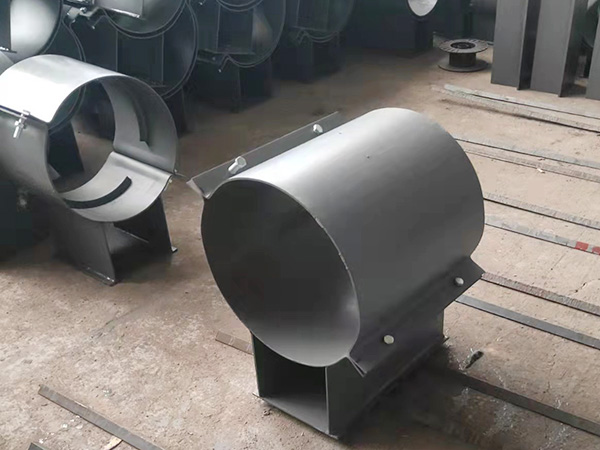
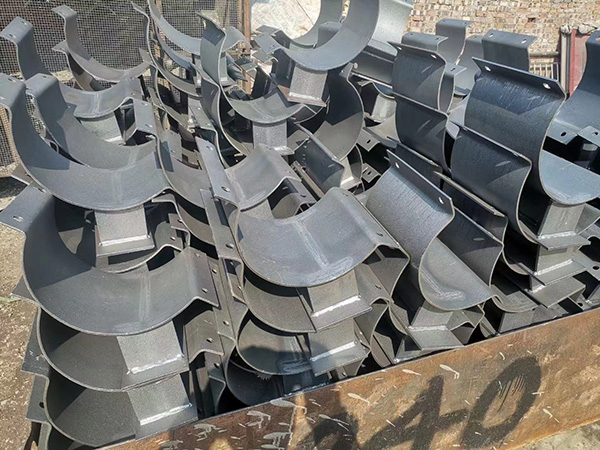
5. Best Practices for Installation and Maintenance
Even a well-engineered support system can fail if poorly installed. Follow these key principles:
·Ensure Alignment: Incorrect placement increases stress on joints.
·Tighten Carefully: Over-torqued bolts can restrict thermal movement; under-torqued ones cause vibration.
·Inspect Regularly: Schedule inspections for corrosion, wear, or loosened clamps.
·Replace Consumables: Elements like pads, bushings, and springs should be checked during shutdowns.
A structured maintenance plan not only prevents unplanned downtime but also extends overall system performance.
6. Balancing Cost and Performance
In industrial procurement, balancing price with reliability is critical.
Chinese pipe support system factories offer cost-effective, bulk supply options with consistent quality assurance.
Customization in material grade, surface finish, or structure allows international clients to meet both technical and financial goals—making it an ideal choice for EPC contractors and plant owners worldwide.
7. Looking Ahead: Smart and Sustainable Pipe Support Systems
As industries evolve toward automation and energy efficiency, Pipe Support Systems are also becoming smarter.
Emerging technologies include:
·Integrated load monitoring sensors for predictive maintenance.
·Eco-friendly coatings and lightweight alloys for reduced carbon footprint.
·Modular design systems that simplify replacement and installation.
These advancements ensure long-term sustainability and operational reliability, aligning with global energy transition goals.
Conclusion: Partnering with a Reliable Manufacturer
Selecting the right Pipe Support Systems for heavy-duty industrial lines is a strategic decision that influences system safety, energy efficiency, and overall project ROI.
Working with a professional China pipe support systems manufacturer offering bulk production capacity and international standard compliance ensures dependable quality and timely delivery.
Whether for power generation, petrochemical processing, or urban infrastructure, investing in well-engineered supports today guarantees decades of reliable pipeline performance.
References
GB/T 7714:Qu W, Zhang H, Li W, et al. Influence of support stiffness on dynamic characteristics of the hydraulic pipe subjected to basic vibration[J]. Shock and Vibration, 2018, 2018(1): 4035725.
MLA:Qu, Wei, et al. "Influence of support stiffness on dynamic characteristics of the hydraulic pipe subjected to basic vibration." Shock and Vibration 2018.1 (2018): 4035725.
APA:Qu, W., Zhang, H., Li, W., Sun, W., Zhao, L., & Ning, H. (2018). Influence of support stiffness on dynamic characteristics of the hydraulic pipe subjected to basic vibration. Shock and Vibration, 2018(1), 4035725.
 Hot Products
Hot Products
 Contact Us
Contact Us
Contact:
Mobile:+86 +86 19133378808
Website:mingdepipe.com
Address:


